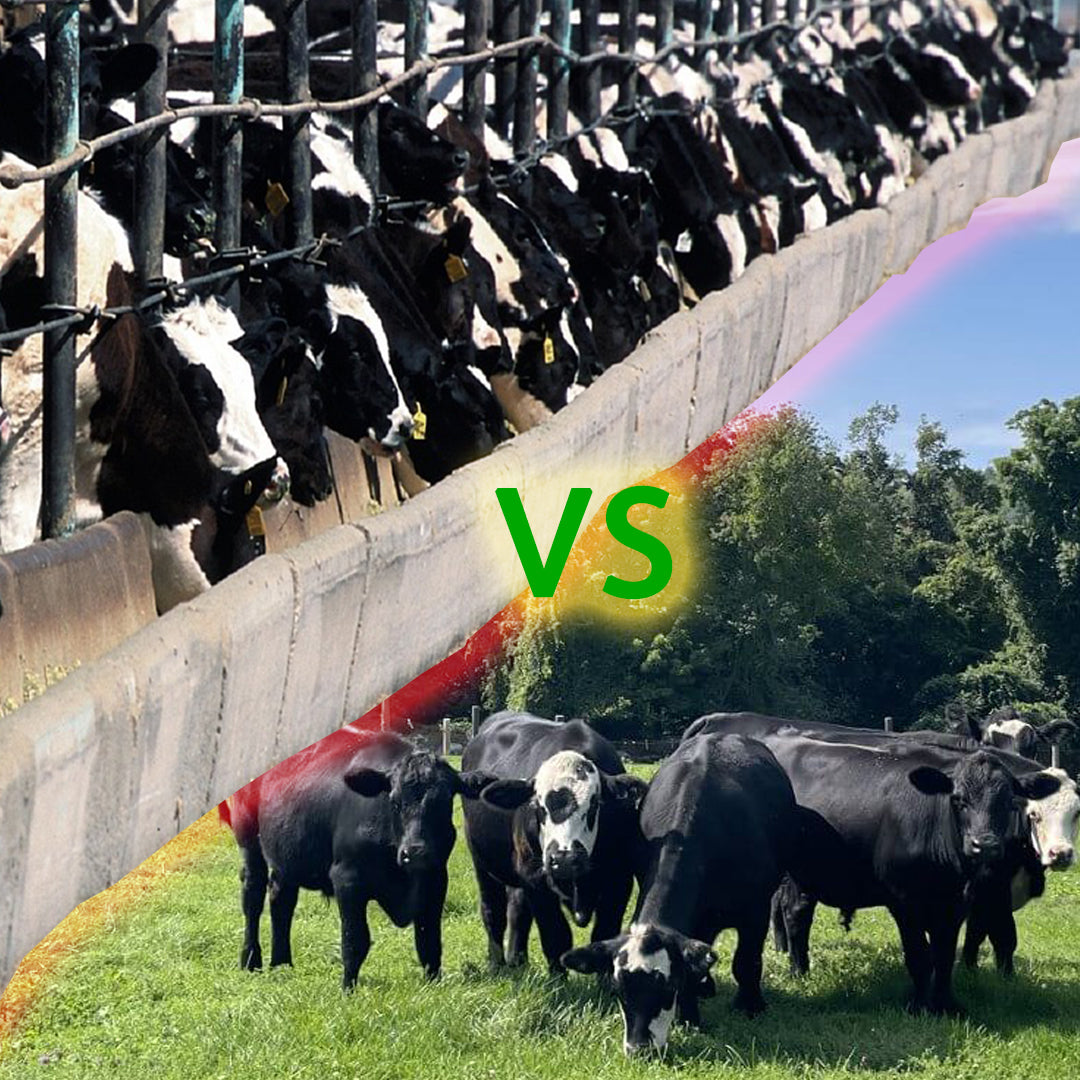
Unveiling the Shocking Truth: The Hidden Dangers Lurking in Your Regular Grocery Store Meat vs. the Surprising Benefits of Grass-Fed Meat Revealed!
The difference between Regular meat and grass-fed meat lies in various factors such as the animals' diets, living conditions, and potential health impacts. Here are some points to consider regarding each:
Regular Meat from Grocery Stores:
- Diet: Conventionally raised animals are often fed a diet primarily composed of grains, including corn and soy. These grains may be genetically modified and could contain pesticides and other additives.
- Living Conditions: Many conventionally raised animals are raised in confined animal feeding operations (CAFOs), where they may have limited space to move around and may be kept indoors for most of their lives.
- Hormones and Antibiotics: Conventional meat production often involves the use of hormones and antibiotics to promote growth and prevent disease.
- Nutrient Profile: Some studies suggest that conventionally raised meat may have a different nutrient profile compared to grass-fed meat, potentially containing higher levels of saturated fats and lower levels of omega-3 fatty acids.
- Environmental Impact: Conventional meat production can have significant environmental impacts, including greenhouse gas emissions, water pollution, and deforestation.
Grass-Fed Meat:
- Diet: Grass-fed animals primarily graze on pasture and consume a diet that is more natural to their biology. This diet typically results in meat with a different nutrient profile, including higher levels of omega-3 fatty acids and certain vitamins and minerals.
- Animal Welfare: Grass-fed meat is often associated with higher animal welfare standards, as animals may have more space to roam and exhibit natural behaviors.
- Hormones and Antibiotics: Grass-fed meat is generally produced without the use of added hormones and antibiotics, although some producers may use antibiotics for therapeutic purposes if an animal becomes ill.
- Environmental Impact: Grass-fed meat production is often considered more environmentally sustainable compared to conventional meat production, as it typically involves less intensive farming practices and may have lower carbon emissions.
It's essential to consider your values, health concerns, and environmental impact preferences when choosing between regular meat and grass-fed meat. Additionally, it's essential to note that while grass-fed meat may have certain advantages, it may also come with a higher price tag in some cases.